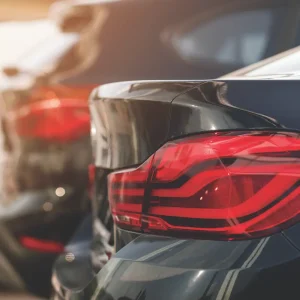The Metropolitan Police has announced it will add 250 electric or hybrid vehicles to its fleet in the next twelve months in order to help reduce pollution in the capital.
Since late 2015 the Met has stopped buying diesel vehicles, and the service claimed it is leading the way when it comes to reducing toxic gasses in the police sector to make its fleet as clean as possible while maintaining operational capacity.
The move to go electric comes as 700 diesel vehicle contracts in total are up for renewal this year. Of that figure, the 450 vehicles that haven’t already been replaced by electric or hybrid cars will be replaced with petrol models, the force told BusinessCar. The Met currently has 3,356 cars on its fleet.
Its decision to move to alternative power follows on from it testing a range of different vehicles from different manufacturers in the past year in order to “gain valuable exposure to emerging technology,” a spokesman told BusinessCar, including a number of BMW i3 range extenders, which were used as rapid-response vehicles in the London boroughs of Westminster, Greenwich and Bexley for six months last summer.
At the time of the i3 trial, the Met claimed it was the first police service to use a range-extender vehicle in its fleet. “We expect the main volume of ultra-low emission vehicles to be plug-in hybrids as our assets are required to respond 24/7. An initial volume of pure EVs are being purchased for imminent deployment and the number of these will expand as battery technology and range improves,” said Jiggs Bharij, head of fleet for the Metropolitan Police.
According to Bharij, the move to alternative power is mainly to reduce the force’s environmental impact, but he also suggested savings could be made in the future by going green: “While it is likely that higher purchasing costs may be incurred, we expect the whole-life costs (including maintenance, fuel and disposal) to be cost-neutral or provide a saving when compared to a conventionally fuelled asset.”
It’s not just electric cars that the Met’s taking on either – Bharij said his team will be installing charging points “across the estate” to ensure the vehicles are able to operate at all times. He also hinted that in the future, frontline police cars may use the public charging network as well.
And he isn’t concerned about the lack of reliability and access to the public network at present – an issue BusinessCar covered at the start of this year – but he admitted he will be monitoring the advancement of public networks “very carefully”.
In addition to this, the service is also purchasing 10 hydrogen vehicles for frontline operations, although these cars will be deployed near to existing hydrogen-filling stations “in order to determine whether fuel-cell technology is capable of performing in a fast-pace response environment”, Bharij told BusinessCar.
There’s no doubt that the Met is making inroads in reducing its pollution levels, but diesel still rules at the moment, despite the purchasing ban enforced well over a year ago. Around 4,000 of its 5,090-strong vehicle fleet (including vans and other specialist vehicles) are diesel-powered, with plans to replace 60% of these vehicles within the next four years, while 85% of the fleet will be compliant with the Ultra-Low Emission Zone standard, expected to come into force in 2019.
“When seeking a replacement we will prioritise alternatively fuelled technology. We do, however, recognise that this technology does not currently offer a solution for all vehicle types or roles – in these instances we will explore petrol alternatives,” the London force’s fleet boss stated. “Where the industry does not offer a petrol or alternatively fuelled asset we will consider diesel technology if it meets the latest emission standards. This is especially prevalent to vans, goods vehicles or specialist applications.”
The police service could also introduce Teslas onto its fleet, with a report last month suggesting senior figures at the Met had spoken to Elon Musk about using his company’s cars for frontline operations.
“We are currently waiting for the UK release of the Model 3 to determine whether this could be a suitable vehicle for frontline response duties,” Bharij concluded.





